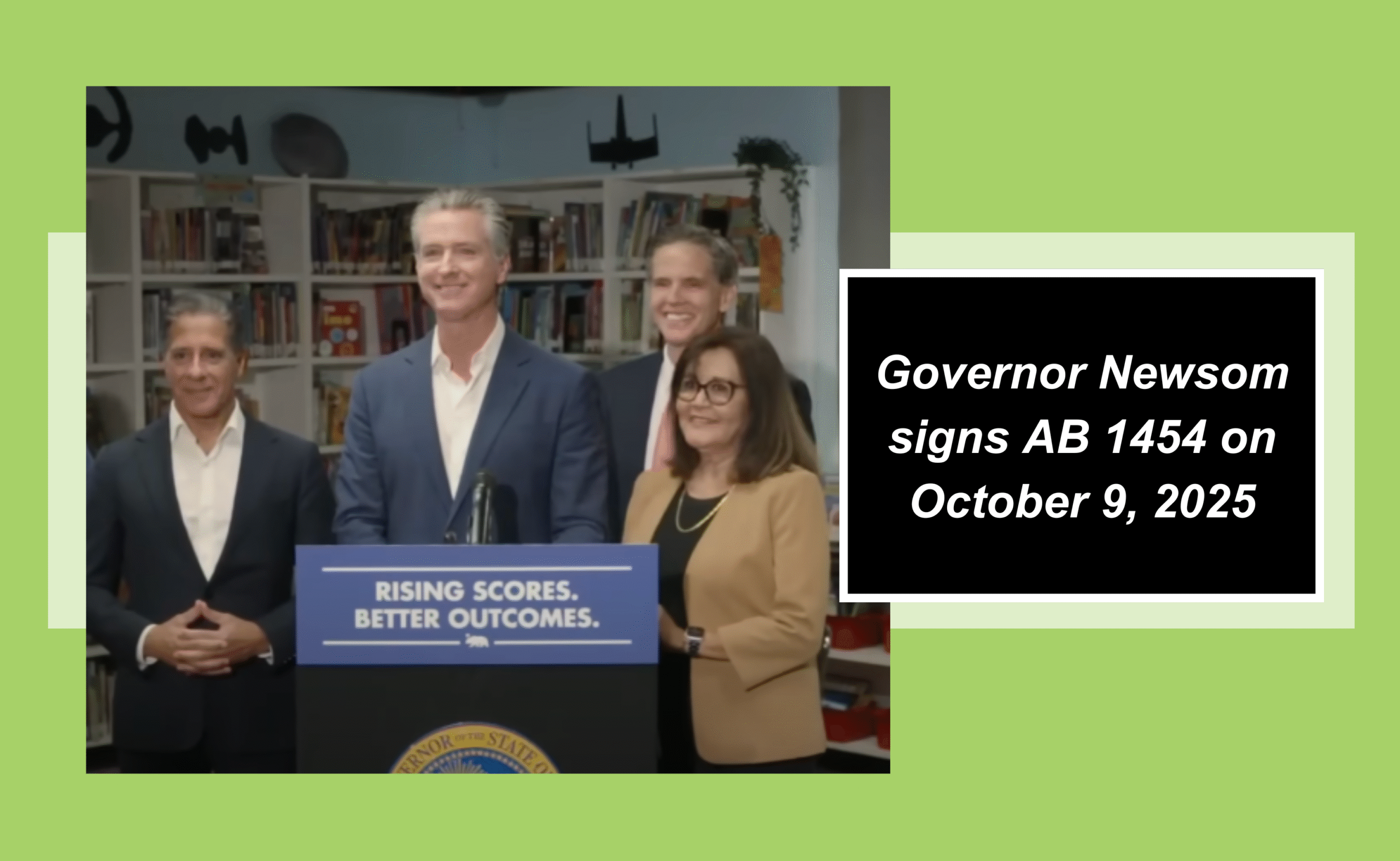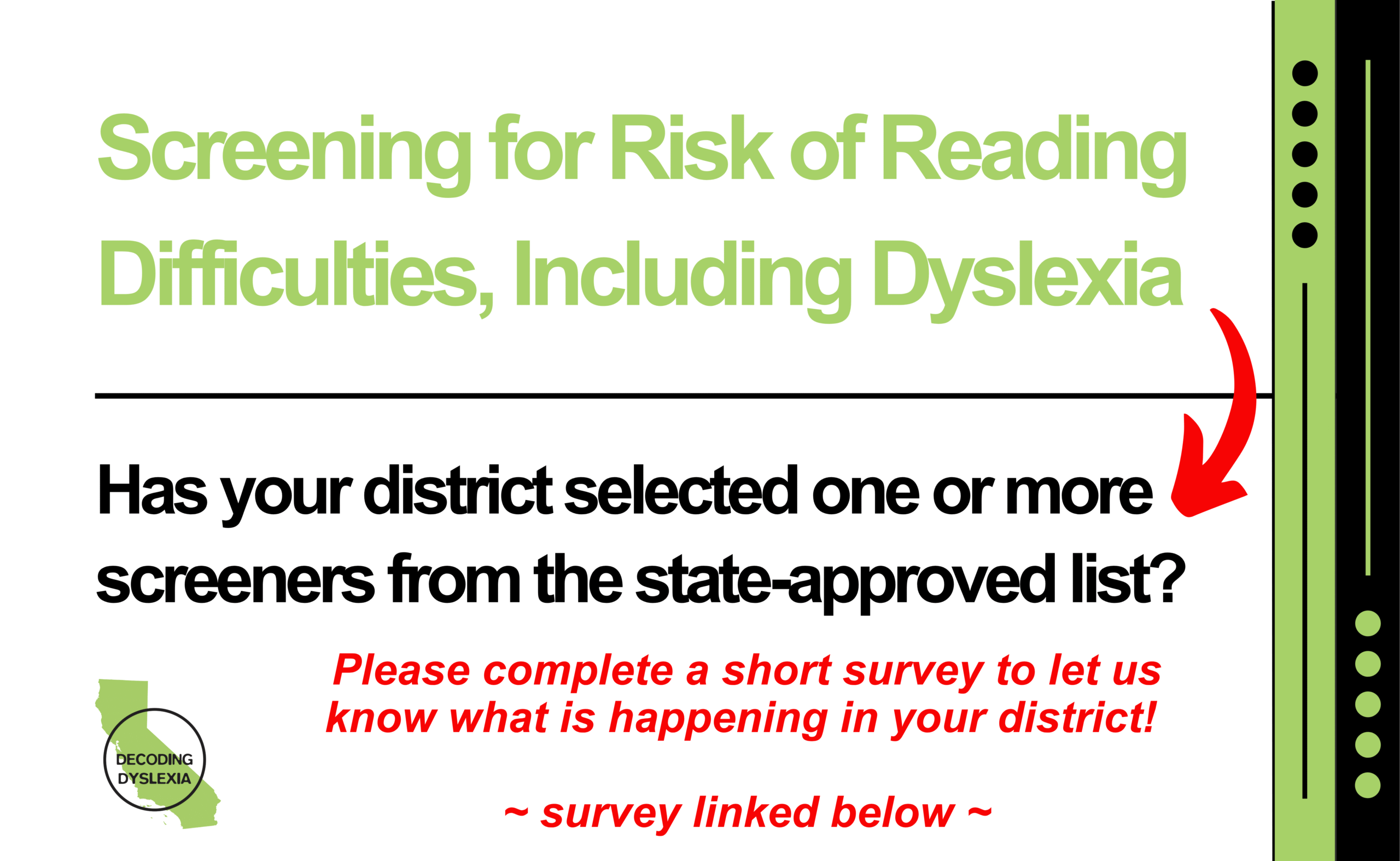It’s time to celebrate!
On October 9, 2025, Governor Gavin Newsom signed AB 1454 (Rivas, Muratsuchi, Rubio), the Evidence-Based Early Literacy Bill, marking a historic step toward ensuring that every child in California can learn to read. The bill, championed by Decoding Dyslexia CA (DDCA), in partnership with EdVoice, Families in Schools, and the NAACP California-Hawaii State Conference won unanimous, bipartisan support, passing 78-0 in the Assembly and 38-0 in the Senate, an extraordinary achievement in California education policy.
“Parents want their children to thrive, and they need schools that can deliver,” said Megan Potente, State Director of DDCA. “AB 1454 ensures that all children, including those with dyslexia, across our state have access to evidence-based reading instruction. Combined with universal screening in all K-2 classrooms being introduced in California this year, this means students won’t be left behind – they’ll be identified early, supported appropriately, and given the opportunity to become strong, confident readers.”
AB 1454, jointly authored by Speaker Robert Rivas (D-Salinas), Assemblymember Blanca Rubio (D-Baldwin Park), and Assemblymember Al Muratsuchi (D-Torrance), will address California’s persistent literacy challenges by updating instructional materials to align with decades of research showing how children learn to read. Additionally, Governor Newsom allocated $200 million in the ‘25-‘26 final state budget to fund professional development in evidence-based literacy instruction for educators, making California the largest state in the nation providing both updated materials and the opportunity for professional development in evidence-based literacy instruction.
“Strong reading skills are the foundation for every student’s success, and this new law demonstrates a landmark commitment to advancing California’s reading and literacy rates,” said Speaker Robert Rivas (D-Salinas). “It is a critical step forward and will improve literacy outcomes for all of our students.”
More than 90 organizations joined in advocating for this landmark reform.
“This is personal for me. As a former teacher and someone who learned English as a second language, I’ve seen what happens when we don’t get reading instruction right from the start – and our kids don’t have any more time to waste,” said Assemblymember Blanca Rubio (D-Baldwin Park). “We have seen for years what happens when kids fall behind by third grade, and they struggle to catch up for years after, even into adulthood. But I’ve also seen the magic that happens when we teach reading the right way – suddenly everything clicks for these kids. That’s what AB 1454 does. It makes sure every teacher has the tools to help every child experience that breakthrough moment.”
The signing of AB 1454 coincides with the 10 year anniversary of DDCA’s first legislative win, which resulted in the state-adopted California Dyslexia Guidelines. When DDCA began over a decade ago, we aimed to raise dyslexia awareness and ensure access to literacy for students with dyslexia and all struggling readers. We set out to change how reading is taught in California and passing AB 1454 marks a monumental moment towards this goal.
Read more in EdSource’s coverage: New law changes how California kids learn to read | EdSource
As always, please encourage your community – families, educators, and advocates – to sign up for DDCA emails to stay informed on all continued efforts to transform literacy outcomes in California.



